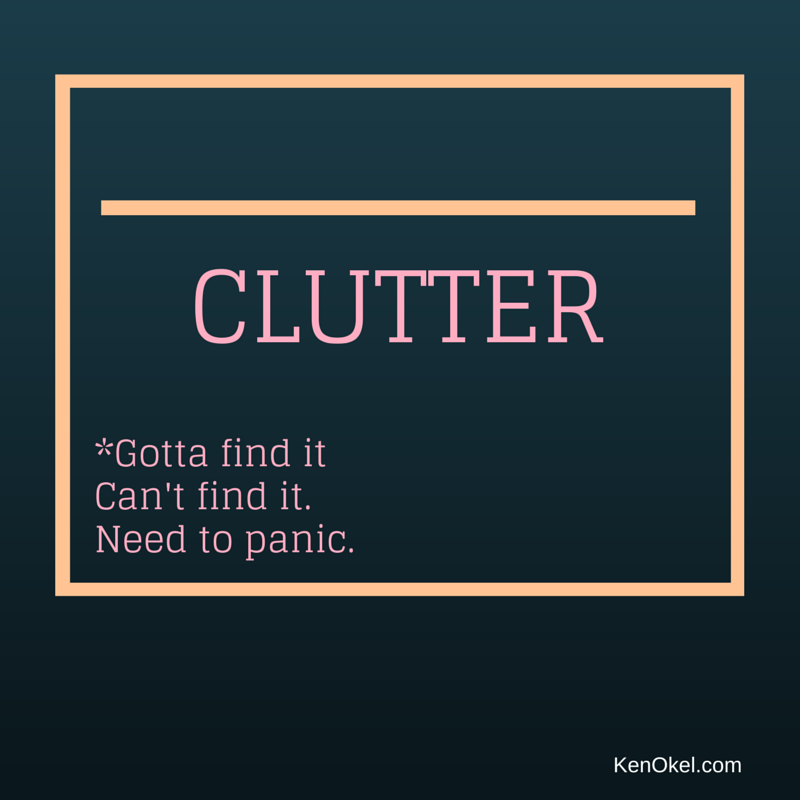 When people ask me how they can improve their productivity, I often say the word, “clutter.” I don’t have to say, “Remove or reduce it,” because the other person immediately knows what I mean. It’s a very easy to understand explanation.
When people ask me how they can improve their productivity, I often say the word, “clutter.” I don’t have to say, “Remove or reduce it,” because the other person immediately knows what I mean. It’s a very easy to understand explanation.
And yet, so many of us struggle with clutter. I am as guilty as the next person when it comes to allowing messy conditions to make me lose important things, turn my desk into a sea of paper, and produce outbursts of frustration. If my home caught on fire, I would likely be seen running from my home, clutching a pile of magazines, junk mail, random Post-it notes, and family photos.
Other than a moment of convenience, when you put something down that should be properly filed, can you think of any other advantage to clutter?
How many times have I needed something and been unable to find it or spent way too much time searching?
I’m thankful to know some fellow professionals who can give me good tips for reducing the mess. There are also many wonderful anti-clutter resources online. These are great tools but you have to be ready to commit to them.
An addiction to clutter can be hard to kick. For me, it involved finding the emotional leverage that made me love order more than I hated clutter. Clutter was a comfortable companion. Keeping things neat seemed like a harder relationship, at first.
Sadly, taking a more organized path is not always a straight line. There are days when I slip and the clean parts of my desk start to vanish. You can allow a temporary visit from a mess but don’t let it stay with you for too long.
I’ve learned to avoid distress, you must say no to the mess.






